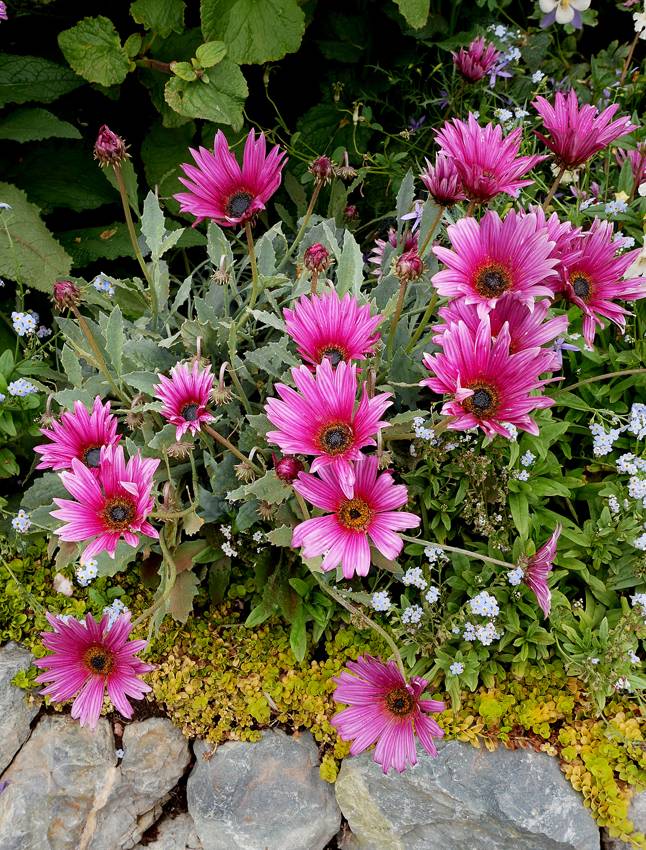Arctotis, a genus of flowering plants native to southern Africa, has captivated botanists and gardening enthusiasts alike with its remarkable features and vibrant blooms. From its rich history to its unique characteristics, here are five fascinating facts about Arctotis:
1. Diverse Species and Colors
Arctotis encompasses around 70 species, each showcasing an astonishing array of colors and patterns. From radiant oranges and deep purples to sunny yellows and crisp whites, these flowers exhibit a spectrum of hues. The diversity in colors has made Arctotis a favorite for horticultural displays, adding a burst of vitality to gardens, parks, and landscapes.
2. Sun Tracking Behavior Arctotis flowers are known for their sun-tracking behavior, scientifically known as heliotropism. During the day, these blooms actively follow the movement of the sun across the sky. This phenomenon, also observed in sunflowers, maximizes the flower's exposure to sunlight, enhancing its ability to attract pollinators and optimize photosynthesis.
3. Resilience in Challenging Environments One of the most remarkable traits of Arctotis is its resilience in the face of adversity. These plants have adapted to survive in harsh conditions such as arid climates and nutrient-deficient soils. Their ability to thrive in such challenging environments showcases their adaptability and reinforces their status as a symbol of endurance and strength.
4. Medicinal and Cultural Significance Arctotis has a historical significance in traditional medicine among certain indigenous communities of southern Africa. Some species were used to treat various ailments, ranging from respiratory issues to skin conditions. Additionally, the plants held cultural importance, with their vibrant petals often incorporated into ceremonies and rituals.
5. Importance to Pollinators Arctotis flowers play a crucial role in supporting pollinator populations. Bees, butterflies, and other insects are drawn to the nectar-rich blooms, aiding in pollination and contributing to the overall health of ecosystems. The intricate structures of Arctotis flowers provide landing platforms for insects, ensuring efficient pollen transfer between flowers.
In conclusion, Arctotis stands as a testament to the beauty, adaptability, and ecological importance of plant life. Its diverse colors, sun-tracking behavior, resilience, cultural significance, and role in pollinator interactions all contribute to its status as a captivating subject of study and admiration. Whether gracing gardens or surviving in challenging landscapes, Arctotis continues to be a source of wonder and inspiration for nature enthusiasts around the world.



No comments yet
Be the first to share your thoughts!